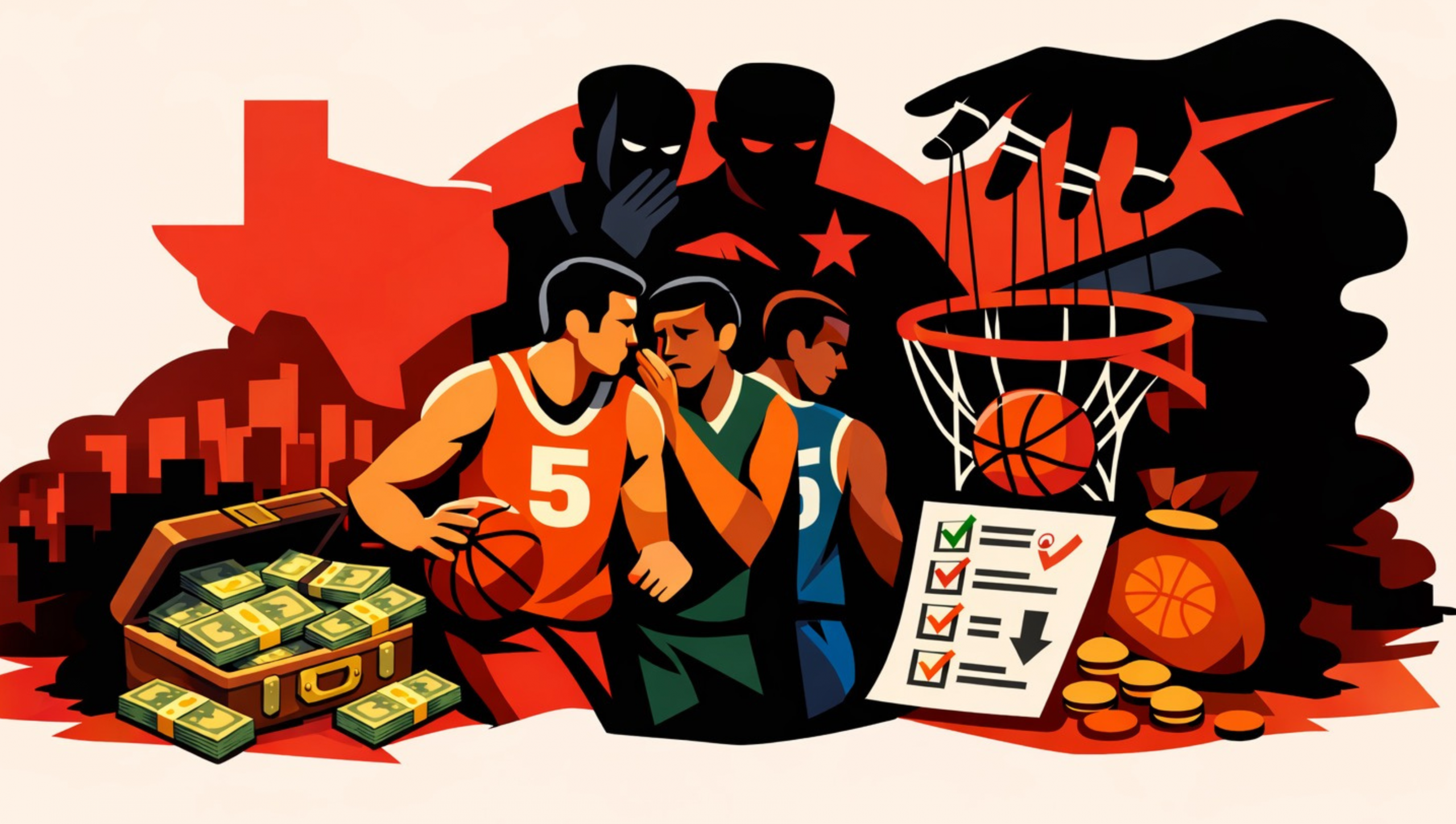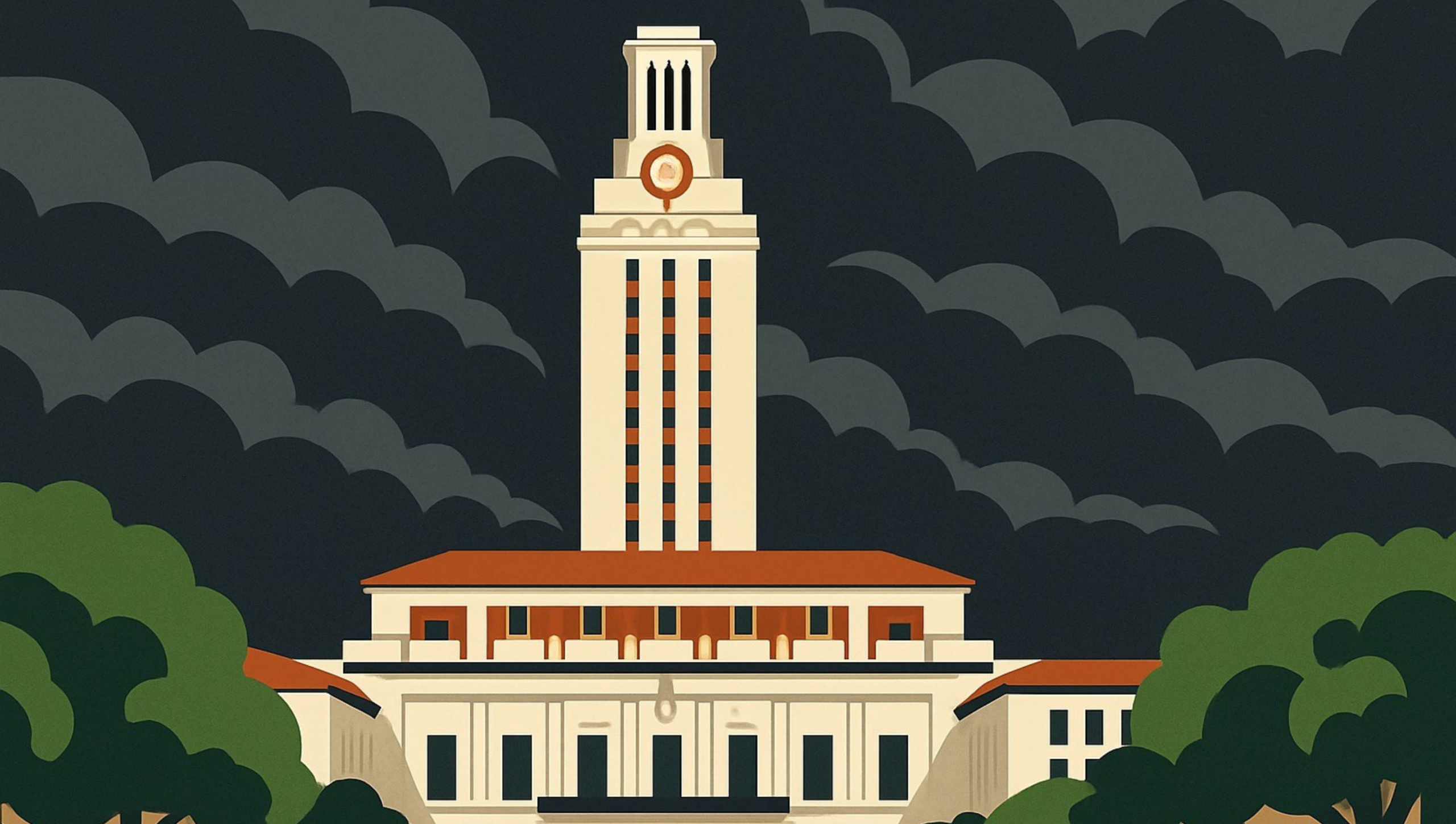As the 89th Texas Legislature mulls over the terrible mistake of legalizing the lottery in the Lone Star State, Las Vegas Sands, a mega-casino conglomerate and multi-million dollar lobbying group, hosted a town hall in Irving regarding their development plans for if prohibitions on gambling are lifted.
Protesters of all kinds filled the Irving Convention Center to the brim on March 13th to voice their fierce opposition to having a casino built in their neighborhood. Members of nearly every religious group in the town showed up to stand against casino being placed down the street from their places of worship. A local mosque even provided meals to fuel attendees well into the night as Muslim adherents broke their Ramadan fast. Local Catholic monks vocalized their dissent towards an industry that exploits the poor for their own profit during the Q&A. Parents, teachers, and students of every race, color, and creed contributed to this outcry against casino gambling, sending a clear message to legislators in Austin that the people of Texas oppose legalization.
Hosted by District 5 Councilman Mark Cronenwett, Las Vegas Sands Senior Vice President Andy Abboud represented the conglomerate, giving a 40-minute presentation on the work, history, and plans of Sands before moving into the Q&A. Throughout the speech, Abboud articulated the ventures of Sands in places like Las Vegas, Pennsylvania, Singapore, and Macao. He placed a strong emphasis on the “entertainment,” and “hospitality,” aspects of the company, noting repeatedly that they specialize in “destination resorts” and “are not a casino-centric company.” Throughout the entire speech and Q&A, projectors flashed touched-up photographs of architectural wonders that, despite their intended efforts, seemingly failed to sway the hostile audience.
At the very beginning of the speech, sensing that his company’s presence was unwelcome based on the hundreds of hand-held “NO CASINOS” signs filling the crowd, Abboud implied that these protesters were paid activists receiving money from Oklahoma and Mexico casino companies for their opposition at the event. Ironically, the Dallas Express uncovered that it was the few pro-casino attendees in the crowd who were in fact paid by Las Vegas Sands and its affiliates to manufacture a semblance of public approval. Messages obtained by Dallas Express reveal that payments of $250 were promised to individuals to sign an NDA and show up in support. Additionally, these supporters carried signs with slogans such as “VOTE Yes for Jobs! Yes for Growth!” with the small disclaimer “Paid for by Las Vegas Sands Corp” at the bottom.
The land parcel in question here is the former Texas Stadium site of the Dallas Cowboys, designated as Planned Unit Development Zone #6. Abboud insisted that the 1,001 acre land mass, located directly beside the University of Dallas, would be composed of so much more than just a casino, with promises of restaurants, convention space, and family-friendly entertainment venues. He frequently affirmed that the creation of jobs, increased tourism, and boosts to state revenue from casino construction and operation would outweigh any potential downsides of gambling.
Those potential downsides were addressed, albeit inadequately and illogically. Abboud claimed that only 2% of people experience gambling addictions, a statistic that encompasses the entire U.S. population, not casino go-ers or individuals in close proximity to casinos. The 2% figure is also incorrect in and of itself, as it doesn’t take into account Americans struggling with moderate gambling issues, only those with severe problems. Casino proponents also dance around the reality that the small number of people they manage to successfully get addicted make up the base of their profits. As fiscal conservatives, we must not only be economically intelligent, but also compassionate towards our neighbors, even if it’s only a small figure being exploited for profit.
Another point that Abboud used to justify his position is that while gambling is unlawful in Texas, illegal, underground, and unregulated gambling machines and activities are widespread throughout the state. This is an undeniable fact, and the law should probably be more heavily enforced than it currently is. Abboud’s solution, however, is to make all gambling legal and regulate it to consolidate profits and social exploitation for his company. This is the same logic as saying “heroin is illegal, but people still do heroin. Therefore, we should just make heroin legal, sell it at Walmart, but make sure that it’s regulated and safe.” The irony in this idea is that heroin, much like gambling, is of course not safe. This fallacious argument prompted actual laughter from the crowd.
Prostitution and human trafficking were two other concerns many members of the audience brought up, often during the long durations of boos and heckling throughout the speech. While avoiding the topic of human trafficking entirely, Abboud did make attempts at addressing the problem of prostitution. He brought up the heightened police presence necessitated for casinos to prevent prostitution, as well as efforts taken by Las Vegas Sands themselves to subvert the practice at and around their establishments. He tied these efforts back to the problem of addiction, noting that Sands offers resources and help to problem gamblers throughout their casinos.
To the audience, the flaunting of these supposed efforts did little to mitigate their concerns. Much like his argument about unregulated gambling machines, his arguments for diverting prostitution and addiction fall flat due to their illogical nature. The very existence of these precautionary efforts validate the beliefs of his opponents that addiction and prostitution are the inherent reality with the establishment of casinos. Why would a rational person take him at his word when he says his company will help prevent the problems that its presence causes, when they could just deny its presence and, therefore, the exacerbation of these problems?
Perhaps Abboud’s final attempt at calming down the overwhelming opposition of the crowd was reaffirming that while Las Vegas Sands is interested in developing the land area, casino gambling remains illegal in Texas. He explained that any possible casino wouldn’t come for many years, as a constitutional amendment would need to be passed and the question of gambling would have to be put up to a vote. “Y’all can relax, it’s not even legal yet!” Of course, the audience’s knowledge that Las Vegas Sands spends millions of dollars buying politicians and pushing propaganda to Texans in order to achieve and even expedite their fears rendered this attempted consolation meaningless.
The Q&A allowed residents to voice their concerns directly to the Las Vegas Sands Corporation. Many of these questions revolved around the issues mentioned above, such as addiction, prostitution, and human trafficking (Abboud stood firm in never providing a clear response to this). One man questioned Abboud as to whether or not Sands would build a casino-less destination resort, based on his earlier assertion that the company produces more than just casinos. Naturally, his response was a firm “no,” revealing that his interests do not lie in entertainment, jobs, or economic growth as claimed, but rather profits from exploitation of Texas families.
Others questioned Sands’ monetary influence on Texas politicians. While he asserted that Las Vegas Sands has not contributed to the campaigns of Irving city council members, he did affirm that the conglomerate has spent “millions” on state races. In fact, Las Vegas Sands spent upwards of $19,000,000 on lobbying activities in Texas during the 2024 election cycle alone!
Some questioners brought up statistics about increased crime rates that contradicted what Abboud had presented. One individual questioned how the construction of a novel convention center and entertainment structure would impact those already existing ones such as the Toyota Music Factory. Many people both throughout the speech and during the Q&A chanted to let the residents of Irving vote on the matter, confident that the opposition would come out victorious.
The Irving Planning and Zoning Commission voted to approve the rezoning of PUD #6 for Las Vegas Sand’s desired purposes by a 5-4 margin on March 17th. Commissioners Daniel Denny, April Myrick, Fahad Ahmed, and Joshua Skinner voted against the proposal, while Alicia Reyes, Debbi Haake, Gerald Sanguino, Ricky Lightfoot, and Terry Prichard in favor.
Despite overwhelming opposition, it appears on the surface as though both Las Vegas Sands and the Irving City Council are confident in casino gambling’s legalization in the near future. As the residents of Irving know and made very clear, the people of Texas do not want casinos in their towns. Whatever possible economic benefits do not outweigh the social costs, the crime, the addiction, the vice, and the exploitation of our most vulnerable neighbors. The fact that certain elected officials in the Texas Legislature are succumbing to lobbyist influence while ignoring the outcry from their constituents should terrify every Texan.
Legalizing gambling is in no way, shape, or form fiscally responsible. It serves as merely a regressive tax on lower-income individuals who are already struggling financially, desperate to make ends meet, and enticed by promises of fortune from conglomerates who profit from their despair. The Texas Legislature should be focusing on lowering tax burdens and the cost of living, instead of helping casinos lure them into increased debt and addiction.
Contrary to the attitude of Las Vegas Sands, gambling addiction isn’t some small problem that can be shrugged off. Texans know better than to sacrifice the well being of their fellow statesmen so that a billion-dollar industry can profit further. The gambling industry profits from addiction in the same way that a drug dealer does, and the Lone Star State has no business subsidizing their exploitative practices.
While many will argue that legalizing gambling will boost state revenue and assist in paying for essential services, what it will really do is foster a cycle of dependence on the losses of its own citizens. The legislature must focus on passing conservative priorities like slashing the budget and capping the spending of local governments. Bureaucracy needs no opportunity to be grown further through increased revenue from an industry that breeds vice and criminality.
Texans for Fiscal Responsibility stands with the Irving protestors against the gambling scourge and its attempt to take over Texas. Our representatives shouldn’t be conceding to the will of corporate casino lobbyists; they must listen to their constituents and do what they know is right for Texas.
Contact your state legislator today and tell them to stand firm against gambling in the Lone Star State!
Texans for Fiscal Responsibility relies on the support of private donors across the Lone Star State in order to promote fiscal responsibility and pro-taxpayer government in Texas. Please consider supporting our efforts! Thank you!
Get The Fiscal Note, our free weekly roll-up on all the current events that could impact your wallet. Subscribe today!




